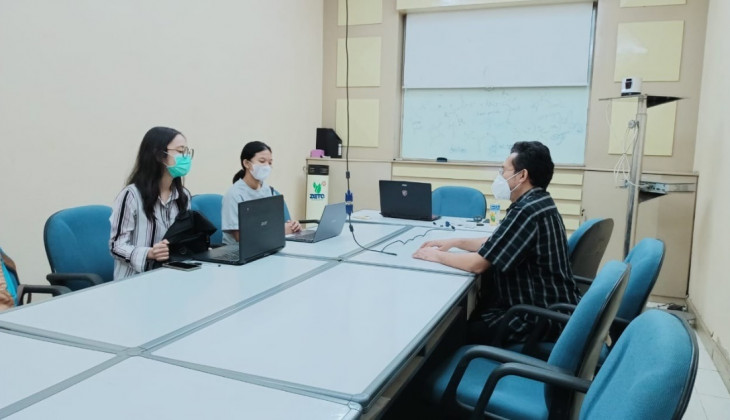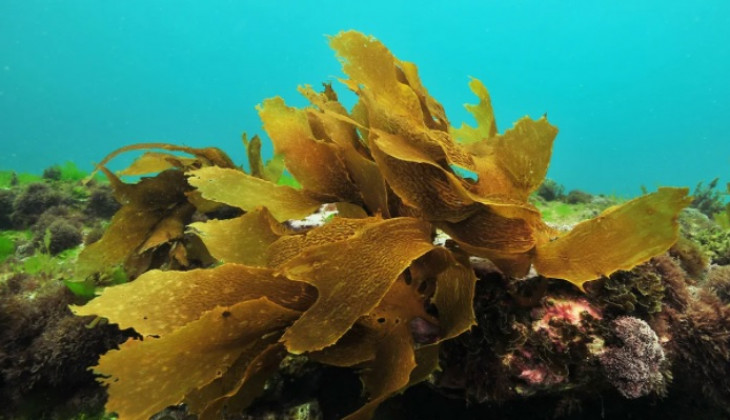
Several UGM students researched the potential of Brown Algae (Ecklonia cava) as an antiviral. They take advantage of brown algae because it has active compounds that inhibit the viral replication process.
“We conducted research by simulating the interaction of the active compound of brown algae with the Covid-19 protein using the docking method,” said the head of the research team, Mumu Mujtahid Fatwa, in a release received on Wednesday (22/9).
Mumu and team members at UGM MIPA, Lusiana Dwi Setiya Rini, Anadea Salsabilla Rahma, and Kintan were prompted to research brown algae as an antiviral starting from concerns about the Covid-19 outbreak. From a previous study by Park and colleagues in 2013 regarding natural ingredients, Ecklonia cava or brown algae has active compounds that can inhibit the replication process due to interactions with the 3CL(Pro) enzyme from the SARS-CoV virus.
“Knowing that there is a similarity in the enzyme composition from SARS-CoV to SARS-CoV-2, we conducted a study of the interaction of the active compound from Ecklonia cava with the target protein of SARS-CoV-2 using the molecular docking method,” Mumu explained.
They researched under the guidance of Mokhammad Fajar Pradipta. The molecular docking method was chosen because it can predict the effectiveness of molecular interactions computationally. This measure reduces the risk of failure and costs less.
Mumu said that brown algae, which is abundant in Indonesia, have been identified as a source of diverse bioactive compounds and have good potential in the pharmaceutical and biomedical fields. This type of algae is widely studied because of the medicinal effects of its active components, which include carotenoids, fucoidan, and phlorotannins. After grouping several active compounds from these materials according to their inhibitory potential, three candidates were obtained: eckol, 2-phloroeckol, and dieckol. These were used in the interaction process with the target protein using the molecular docking method.
The results showed that molecular docking interactions succeeded in inhibiting the target protein 3CLPro SARS-CoV-2 with candidate ligands including eckol, 2-phloroeckol, and dieckol, which showed high affinity for the binding pocket of the 3CLprotease SARS-CoV-2. The minimum free binding energy obtained from the redocking results includes -3.15 kcal/mol, -4.80, and -6.94 kcal/mol. Dieckol has a minimum free binding energy of -6.94 kcal/mol, so it can be used as a drug that is compatible with existing antiviral and antimalarial drugs.
“Dieckol has excellent inhibitory activity. We also performed an analysis by adjusting the binding involved with existing antiviral and antimalarial drugs. There is a similarity which represents that the active compound can be studied further by conducting pre-clinical tests to monitor the inhibitory activity,” he concluded.
Source: https://www.ugm.ac.id/id/berita/21711-mahasiswa-ugm-teliti-potensi-alga-coklat-sebagai-antivirus



